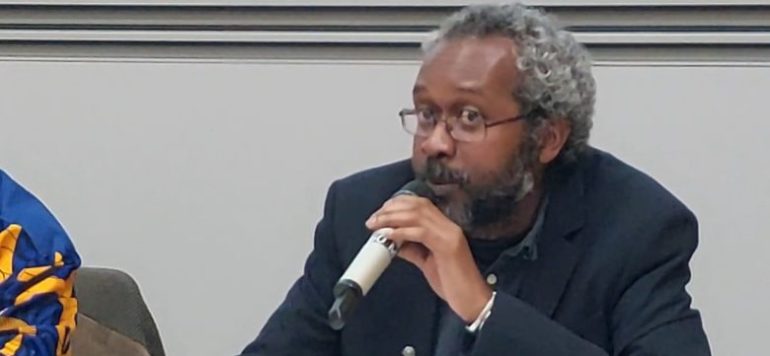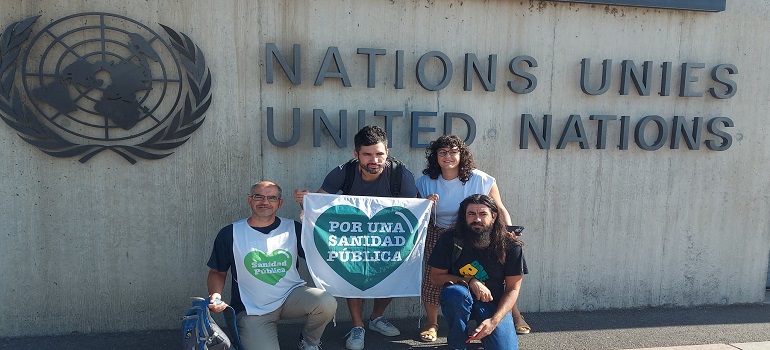CETIM focuses on the promotion and implementation of economic, social and cultural rights (ESCR). They are the backbone of human rights and a powerful tool for achieving a self determinated development model by peoples. This is particularly true for the most vulnerable and marginalised populations. Properly implemented, these rights contribute to the respect for human dignity and to the achievement of social justice. On the contrary, the violation of any of them can jeopardise the enjoyment of all the others.
The universality, indivisibility and interdependence of human rights are enshrined in international instruments. Yet, we are still a long way from their effective implementation for all, and ESCR are among the worst off. Indeed, the basic needs (food, water, health, housing, education) of a third of humanity are still not being met. In some respects, the situation has even deteriorated, including in the countries of the North. This is due to the fact that the policies adopted at economic level accentuate ESCR violations and cause
– increased poverty
– growing inequality across the world
– multiple crises (political, economic, financial, environmental, social and cultural).
By definition, human rights are designed to protect citizens from the arbitrary actions of the most powerful and their governments
The international health crisis linked to COVID-19 has only exacerbated this situation. It has also shown the importance of implementing public policies based on ESCR. In particular, the right to health, the right to housing, the right to food, the right to water, the right to work, the right to education and the right to social security.
But for human rights to be better respected, they must be known, they must be demanded and they must be enforced. However, victims are often unaware of their rights and of the mechanisms available to them for appealing (at national, regional or international level). States, which have an obligation to inform and educate their citizens about human rights, often fail in their duties.
The role played by civil society organisations and social movements in human rights education and training is therefore crucial
– to denounce human rights violations
– to contribute to the implementation of existing standards.
Amzat Boukari-Yabara, guest speaker at the conference organised by CETIM, shares his vision of the Alliance of Sahel States. ‘I would like to begin my speech with a bit of history, which is a bit long but necessary to understand that the Alliance of Sahel States is not just about a pan-African renaissance, but rather […]
Continue reading
HUMAN RIGHTS COUNCIL 57th session 9 September – 11 October 2024 The main obstacles to the realisation of economic, social and cultural rights (ESCR) include the failure to respect the self-determination of peoples and the sovereignty of States, as well as the unjust international economic order. Read the CETIM’s oral declaration in French Watch the […]
Continue reading
PRESS RELEASE Madrid, Geneva, 04.09.2024 – The Carabanchel People’s Assembly, together with CETIM, submitted a report to the UN human rights protection mechanisms to denounce the violations of the right to health due to the neglect and lack of professionals at the Abrantes Health Center and the resulting delays in healthcare services, as well as […]
Continue reading
At the end of July 2024, four activists from the Asemblea popular de Carabanchel left the working-class district of Carabanchel (Madrid) to claim public health systems, and in particular to demand that the number of doctors and paediatricians working in the district, as required by Spanish law, be respected. This battle against the inertia of […]
Continue reading
At the 56th session of the United Nations Human Rights Council, on Tuesday 2 July 2024, the UN Special Rapporteur on extreme poverty, Olivier De Schutter, presented his annual report on the subject. In this document, he presents his reflections aimed at deconstructing the deep roots of poverty and denouncing the dominant economic model which, […]
Continue reading
« Previous
1
2
3
4
…
34
Next »






